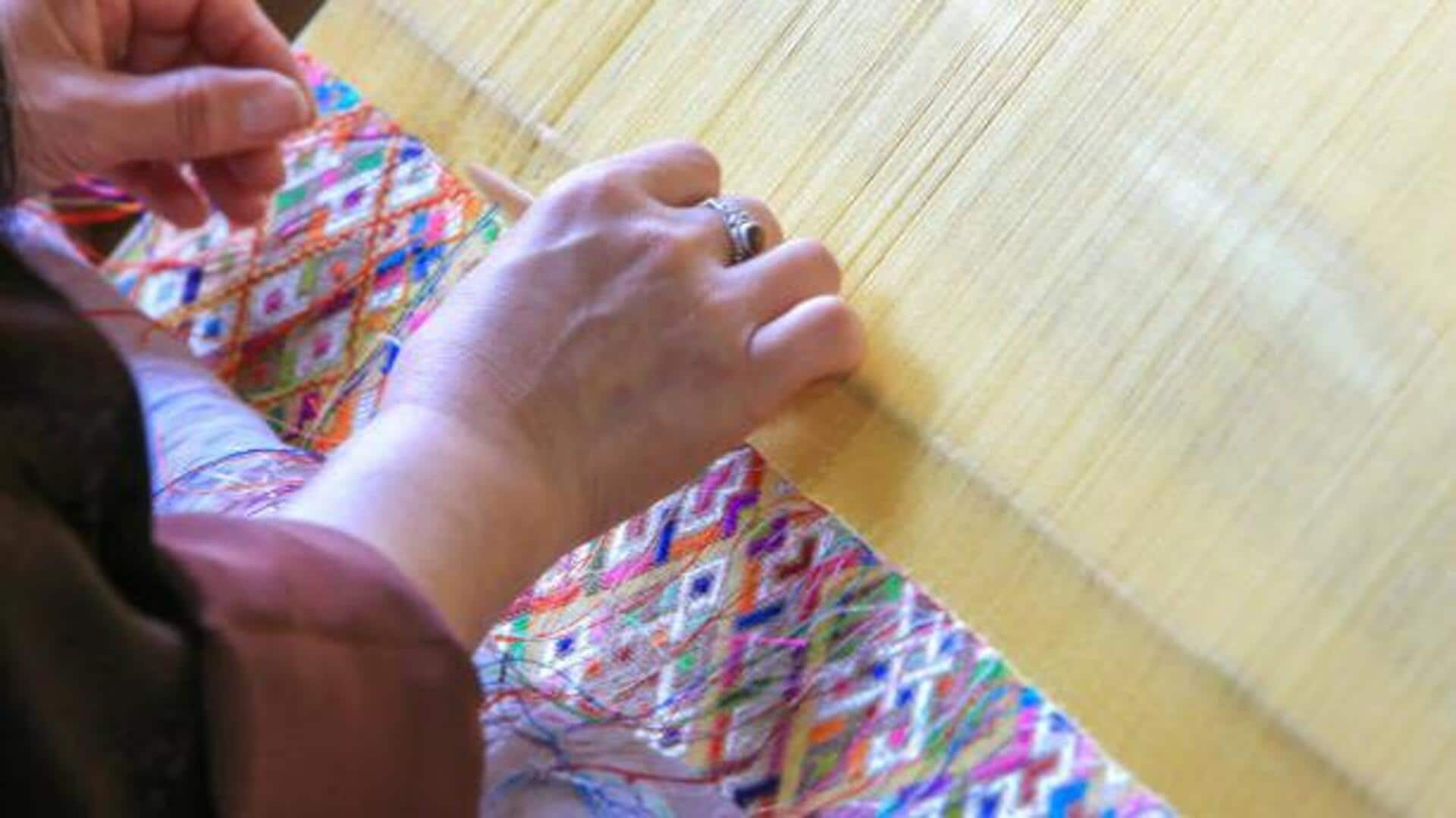
Traditional weaving in Bhutan: A village tour experience
What's the story
Bhutan is famous for its rich cultural heritage and stunning landscapes. The quaint villages of Bhutan also offer unique tapestry weaving tours. You get to explore the traditional art of weaving, which is so deeply embedded in Bhutanese culture. You can witness skilled artisans at work and try your hand at creating intricate designs. The experience not only showcases vibrant textiles but also offers insight into daily lives of local communities.
Techniques
Discovering traditional weaving techniques
In Bhutan, weaving is a time-honored craft that has been passed down generations. The techniques involved are intricate, requiring immense skill and patience. From backstrap looms, artisans create beautiful patterns with vibrant colors. Every design tells a story or represents an important aspect of Bhutanese culture. One can observe these techniques first-hand during their tour, appreciating the craftsmanship involved.
Workshops
Exploring local artisan workshops
The villages also host several workshops where visitors can interact with local artisans. These workshops allow for a hands-on experience where participants can learn the ropes of basic weaving under expert guidance. The interaction with artisans also gives an insight into their day-to-day lives and the challenges they face in keeping this age-old craft alive in the face of modern influences.
Cultural insight
Understanding cultural significance of textiles
Textiles have great cultural significance in Bhutanese society, often used during festivals and ceremonies. Each piece reflects regional identities and personal stories through its patterns and colors. By understanding these cultural connections during the tour, visitors gain deeper insights into how textiles play an integral role in maintaining Bhutan's cultural heritage.
Sustainability
Supporting sustainable tourism initiatives
The best part is that participating in tapestry weaving tours also supports sustainable tourism initiatives. These economically benefit local communities while preserving traditional crafts for generations to come. Such initiatives ensure that tourism doesn't disrupt village life but enhances it. They offer additional income sources without compromising cultural values or environmental sustainability.